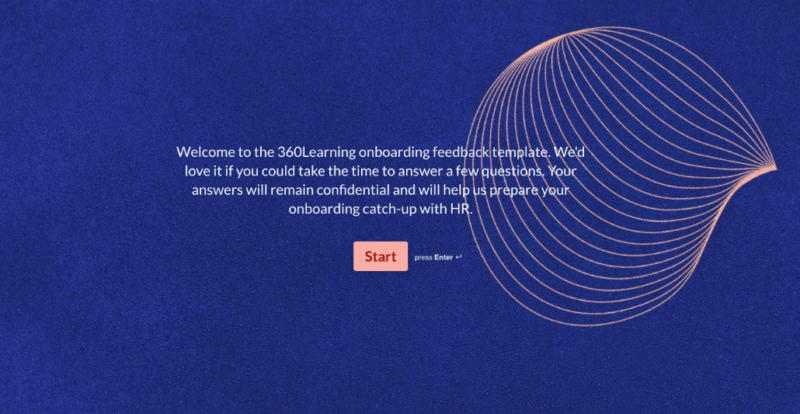
The Pitfalls Hindering Your Onboarding Training Effectiveness
Barring any kind of sci-fi incident, you only get one chance to make a first impression. As an employer, effective onboarding training is your chance to start off on the right foot from day one. But, with 31% of employees leaving new jobs in the first six months, [1] it’s clear companies are frequently missing the mark.
Employee onboarding training mistakes lead to employees that are unable to do the job they were hired for, and worse, they lead to major issues with retention. Fortunately, you can prevent these mistakes and design stellar onboarding training programs by avoiding these common pitfalls.
1. One-Size-Fits-All Onboarding Training
Taking a one-size-fits-all approach to onboarding training will ultimately fail most employees. Your employees have different learning preferences, work styles, and job titles. Your training needs to be designed with customization in mind to ensure you create an employee experience that meets those preferences, work styles, and job titles. In other words: implementing the right type of training for the occasion makes all the difference.
The first thing you should do to avoid one-size-fits-all training is to customize the onboarding experience to match the new hire’s previous work history. Someone joining your company with ten years of experience will likely require far less foundational training than someone fresh out of college and vice versa.
It’s also important your onboarding is tailored to your employee’s new role. Sure, you have to cover general information everyone needs to know. But you also need to properly equip each new hire with the knowledge required to do their unique job. At 360Learning, we accomplish this by breaking our training into phases.
- Preboarding: This is all the communication and paperwork that happens before the employee’s first day at work, including company policies and our employee handbook. This is our chance to make a great first impression as the person’s employer, so clear communication and friendliness are key.
- Induction: Employee training really begins during each new hire’s first week. In this time, we focus on covering the basics of 360Learning as a company, including culture, benefits, and work environment. Both this stage and preboarding are the same for all our new employees.
- Role-specific onboarding: The role-specific onboarding phase is tailored to fit the job the employee is hired for. We use this phase to introduce employees to their coach, onboarder, and buddy, and begin tackling role-specific responsibilities. This is also a great time to set expectations for the role.
The above model is how 360Learning does things, but this doesn’t mean you have to do exactly the same. Create a training process that fits your company, culture, and the individual wants and needs of your team. And while you want your training to be customized, don’t be afraid to lean on onboarding checklists and templates for a quick starting point.
Whatever route you go with your own customized training, it’s a good idea to reserve group training for more general information, like benefits and culture. Role-specific information should be saved for more intimate training sessions, either with a direct manager one-on-one, in small groups, or through asynchronous courses (like we do at 360Learning). This gives those employees the chance to ask relevant questions and start off on the right foot.
2. Information Overload
Train people on the things they need to succeed, not everything you think they might need to know. Too much information will get in the way of successful onboarding and may leave new hires feeling overwhelmed.
Leverage your experienced team members throughout the training development process to ensure your onboarding program covers the most relevant information for each role. These team members will know what tools, responsibilities, and additional knowledge are necessary to succeed in the role. These experienced employees can also tell you what information is extraneous, saving you and your new hire valuable time. From there, you can gather necessary resources and create training specifically for that role.
Similarly, reach out to those who have been with the company within their first year and ask if the job training met their needs. Did they find any of the information unnecessary? If so, update your training to ensure it’s complete, but not overstuffed.
3. No Follow-Up From The Onboarding Manager
Follow up with new hires as they progress through the onboarding process. Regular touchpoints allow you to determine if the process is going well, or if anyone is feeling left behind or frustrated about a particular aspect. Some employees may contact you about problems or shortcomings, but not every employee feels comfortable with that level of candor. Failure to follow up leaves those who stay silent behind.
Regularly check in with each new hire to see how they’re doing. Gauge if they seem happy, have everything they need to learn, or if there are any red flags. Make it clear during follow-ups that the new hire should also give you feedback during that time. If something’s not working, you need to know as soon as possible.
During your follow-up calls with new hires, determine if supplemental training or materials are needed. If a new hire seems like they need additional help, shadowing is a valuable tool to utilize. This is also a great opportunity for the employee to build a relationship with a more senior teammate or direct manager.
Lastly, if you notice someone is lagging behind or struggling, step in and offer support. Mention that you have additional resources on X, Y, Z, or direct them to another team member that can remedy the issue or provide support. Remember: some people aren’t comfortable reaching out to you, so it’s up to you to ensure nobody is left behind.
4. Culture Is Ignored
Culture plays a big role in securing top talent and keeping it. Nearly one-quarter of employees say they’d leave a job over poor company culture. [2] Simply put: failing to showcase company culture during onboarding training is a mistake.
Dedicate a section of your onboarding training to discuss company culture. Discuss your company’s mission statement, culture pillars, policies and fringe benefits, and so on. This information should also be available in your online handbook, where employees can access it whenever they need it.
Once you’ve covered the major aspects of culture, drill down and talk about the people who make your culture possible—human resources employees, those taking part in any diversity, equity, and inclusion (DEI) initiatives, etc. Be sure to share contact information for each of these personnel as well, giving your new hires the resources they need to reach out with any questions they might not be comfortable asking then and there.
After covering the essentials, like policies and your mission statement, take some time to show off your culture in action. Share pictures from company outings, events your company puts on, and more. This shows employees your company doesn’t just preach culture—they embody it.
5. Not Collecting Feedback After Onboarding
Your employee onboarding process can only improve if you know what’s broken. Gathering feedback from new hires is an essential way to gauge employee engagement and find out where you can improve onboarding training.
Survey employees once they complete the onboarding phase to see if your training hits the mark. You can ask any questions you’d like, but there are several you should absolutely include:
- How was the overall onboarding training experience?
- Were certain modules or topics more helpful than others?
- What challenges did you face during onboarding?
- Are there any sections or topics you think could be removed? And any that should be added?

At 360Learning, we survey our new hires once they complete onboarding training in order to get feedback in real time.
Take feedback to heart and implement changes where you can. Compare your feedback to the last group’s input to see if you have recurring problems or if things are trending in a positive direction.
Collaborate And Create The Best Onboarding Training
Collaboration across your entire team allows you to make the most relevant and proper onboarding training possible. Embrace collaborative learning and include everyone you can in the discussion. Those who have worked in the roles you’re onboarding for will bring unique information to the table. That way, you get the complete picture of your onboarding training and create something that’s truly useful.
Experts claim 20% of turnover happens in the first 45 days, [3] but that doesn’t have to be the case for you. Give your new employee onboarding program an edge with our free playbook.
References:
[1] These 10+ Onboarding Statistics Reveal What New Employees Really Want in 2023
[3] Reducing New Employee Turnover Among Emerging Adults
Additional Resources:

360Learning
360Learning is the learning platform powered by collaborative learning. Upskill from within to accelerate internal mobility and deliver relevant training at scale with our easy-to-use, award-winning authoring tool.
Originally published at 360learning.com.